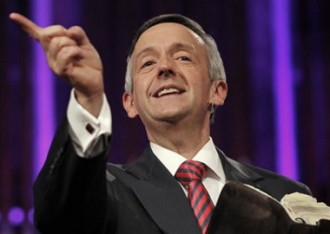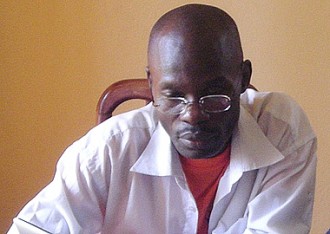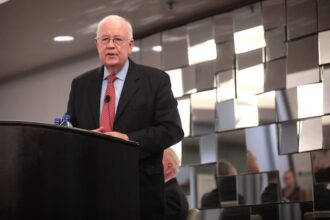Muslims and Christians Bond Over Gay Rights
The enemy of my enemy is… my enemy too?
Read MoreThe enemy of my enemy is… my enemy too?
Read More
Total surrender to heteronomous ethics is unhealthy, period. It may be prescribed by some, but it is also what leads to fundamentalism and religious violence. Gay people know this firsthand: to love oneself as a religious queer person requires interposing one’s own experience between oneself and the text. The text in its traditional reading cannot be correct, because it is incompatible with a notion of a loving God. But that truth is only known by allowing experience, conscience, and discernment to speak.

“Neither hunger nor HIV can be curbed or ended by the church, but neither can these goals be accomplished without the help of the church and other faith communities. Governments alone have the resources to deal with the tremendous needs of feeding the hungry and caring for the sick. However, the church can help serve as the conscience of a country—prompting policies that are more compassionate and generous to the poor. Faith communities need to model what it means to be non-stigmatizing and what it means to share from its resources. Christians that do not reach out to the poor, the hungry, and the sick jeopardize their own souls.”
Read More
Jeffress thinks it’s fine to interrogate candidates’ religious beliefs. Indeed there may be times when it is legitimate to ask whether a candidate’s religious positions would have a direct impact on policy. Religious Right activist David Barton has declared that the Bible is opposed to progressive taxation, capital gains taxes, collective bargaining, and the minimum wage. It’s legitimate to ask whether candidates who praise Barton’s work—such as Michele Bachmann and Newt Gingrich—share those opinions. Similarly, when a presidential candidate like Bachmann calls a Christian Reconstructionist thinker her “mentor,” it is not religious bigotry to ask whether she shares his views about the Constitution and the roles of religion and government in society. But questioning the authenticity or soundness of a candidate’s religious views, for example to have Barton and Glenn Beck rail against what they believe are President Obama’s religious views on the nature of salvation, seems far less appropriate—or useful.
Read More
In a move not widely reported outside of Michigan, the Michigan State Senate passed the country’s first pro-bullying bill on November 2. At first, it was an anti-bullying measure not unlike the laws passed in many other states. But under the perverse influence of a few far-right opportunists, legislators led by State Senator Rick Jones (R, of course) became convinced that the law would somehow persecute those noble enforcers of Christian—I’m sorry, “Judeo-Christian”—values in our nation’s high schools: bullies.
Read More
“What the feminist movement and the LGBT movement have become for religious communities is a test of hospitality. Are you really open to accepting and welcoming everyone? Is the personhood of the gay couple as welcome as the personhood of the straight couple? It’s not just simply what your political position is about the rights of these people, but are these people really people? And are they people with their full wisdom, their full experience, their full sense of who they are? Are they really, truly welcomed into the deepest realms of making community?”
Read MoreOur homosexuality (or bisexuality or transgenderism) is, for them, simply a symptom of sin—something we can change, like underwear.
Read More
At the end of 2011, in a sign of what’s to come, the U.S. Bishops warned the Obama administration to amend a regulation on contraception in its health care legislation or stand accused of religious discrimination.
Read More
Today marks the one-year anniversary of the murder of Ugandan gay-rights advocate David Kato, 46, who was killed after months of right-wing threats; most notably being featured on the front page of a Ugandan right-wing newspaper…
Read More
According to Professor Marc Ellis, a critic of Israel and the American Jewish establishment, Baylor University’s new president Ken Starr is seeking to replace him with “a right-wing, Israel-loving Jew that would cement [Starr’s] reputation with the right wing…”
Read More